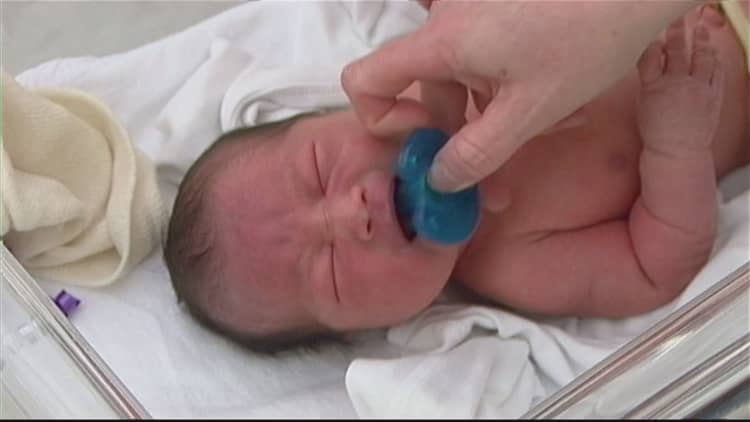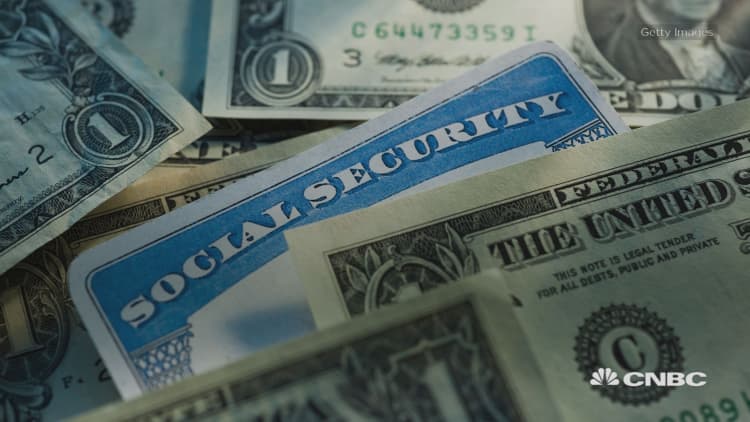
Chris Carosa thinks he has a solution for America's impending Social Security funding woes: child individual retirement accounts.
If you've never heard of a Child IRA, that's because officially, it doesn't exist. While an adult can set up a custodial or guardian IRA under current law, the minor must have income that matches or exceeds the amount contributed to it, whether it's a Roth or traditional version.
"We let parents and grandparents save for their kids' college expenses [in tax-advantaged 529 college savings plans] without requiring the child to have income," said Carosa, president of Carosa Stanton Asset Management, a Mendon, New York, firm that manages $30 million in assets. "Why don't we let them save the same way for their kids' retirement?"

Carosa's data show that a $1,000 contribution to a newborn's account every year through their 19th birthday would grow to $2.2 million by the child's 70th birthday. This assumes an 8 percent average annual return over the seven decades. This compares with the roughly 11 percent median return for the Standard & Poor's 500 index over 19 separate 70-year stretches between 1928 and 2016.
Based on data from the recent annual trustees report, Social Security will face shortfalls beginning in 2034. At that point, unless Congress has taken steps to shore up the program's solvency, it will be able to fund about 75 percent of benefits. By 2091, unfunded obligations would reach $12.5 trillion.
"Social Security would fundamentally change in a disruptive way," Carosa said. "There's no avoiding that reality."
He said if Congress continues delaying action, then some sort of inequitable bailout would occur. And that, he said, is when people who set up Child IRAs now would be in a better position to weather any cuts.
Mark Mazur, director of the Urban-Brookings Tax Policy Center, said such an account would do little to benefit children whose families have no money to fund such an investment.
"It's not a terrible idea if your goal is to assure kids of well-off parents have assets in retirement," Mazur said.
Here's how Carosa envisions it: Any adult would be permitted to make tax-deductible contributions to any child's account, whether family, friend or stranger. Each minor would be able to receive a maximum $1,000 yearly, but contributors could spread a greater amount across multiple accounts.
Carosa's idea also calls for the Child IRA converting to a traditional one at age 19, subject to current law. This means that additional contributions — 2017's limit is $5,500 for people under age 50 — would lead to even higher account balances in retirement.
Social Security would fundamentally change in a disruptive way. There's no avoiding that reality.Chris Carosapresident of Carosa Stanton Asset Management
Congress has previously waded into the concept of retirement accounts for newborns. Various measures introduced in the 1990s and early 2000s would have created so-called KidSave accounts, created with an initial government contribution. Those bills never made it out of committee.
Lawmakers also have explored self-funded, tax-advantaged accounts as a way to encourage retirement savings outside of Social Security. During the administration of George W. Bush, for instance, there was a push from the White House to replace existing IRAs with an account that would come with no income requirements. However, critics pounced on it as an effort to partially privatize Security Security.
Carosa isn't proposing that Child IRAs replace the benefits program. He says, however, that if his idea proved popular, it would mean more funding available for those who really need it if a crisis point were reached.


